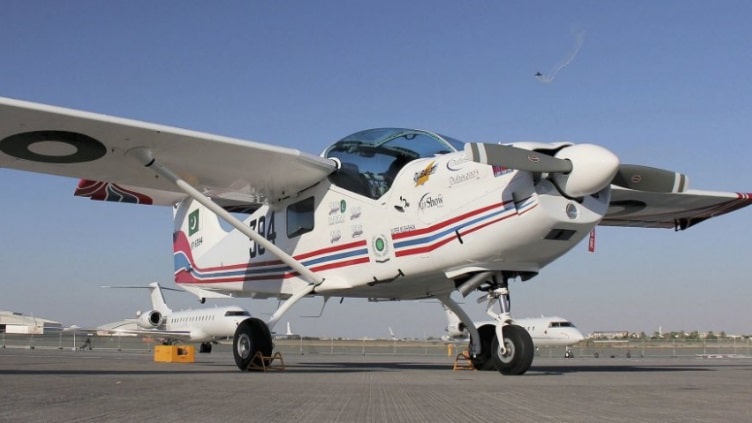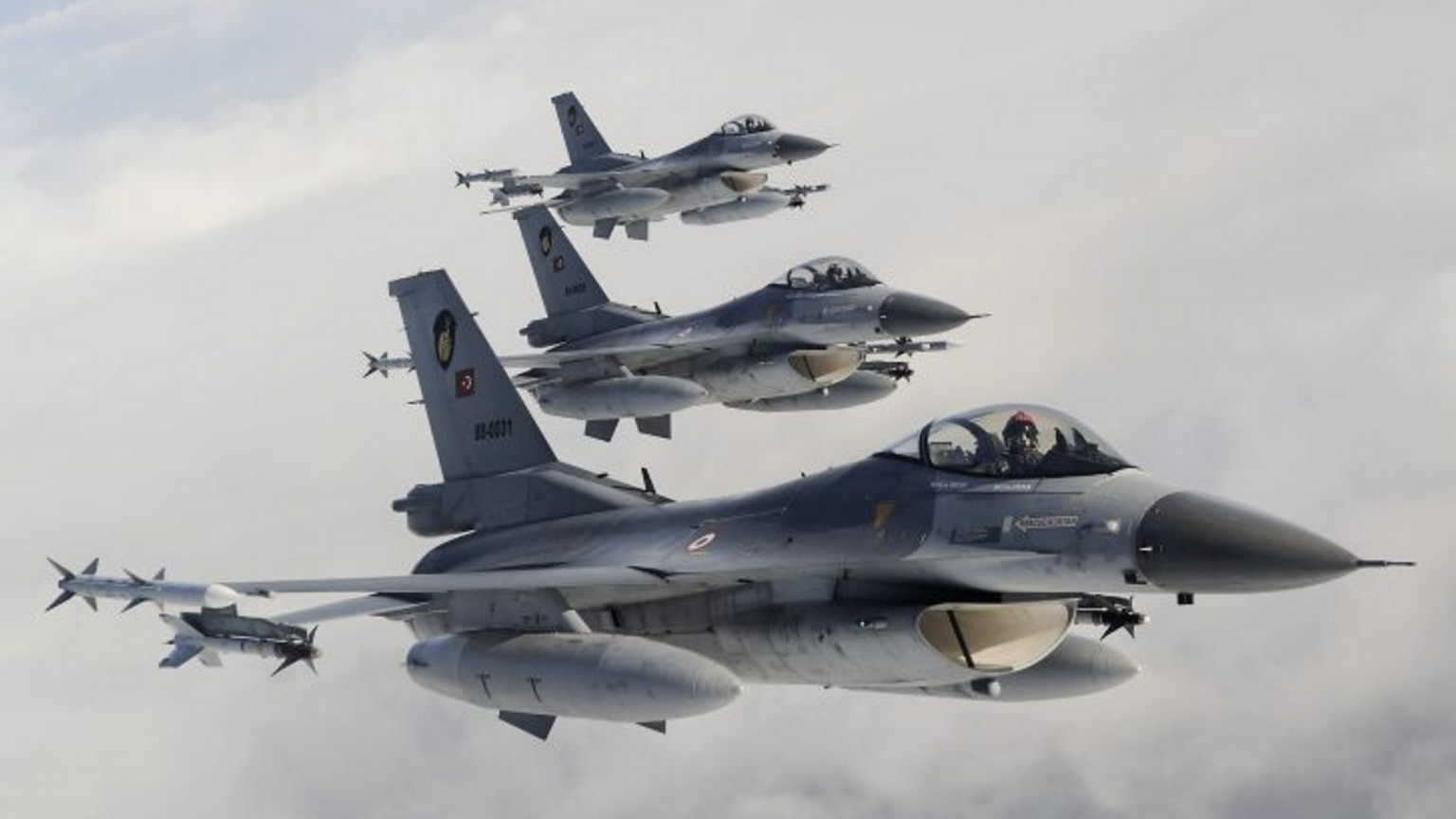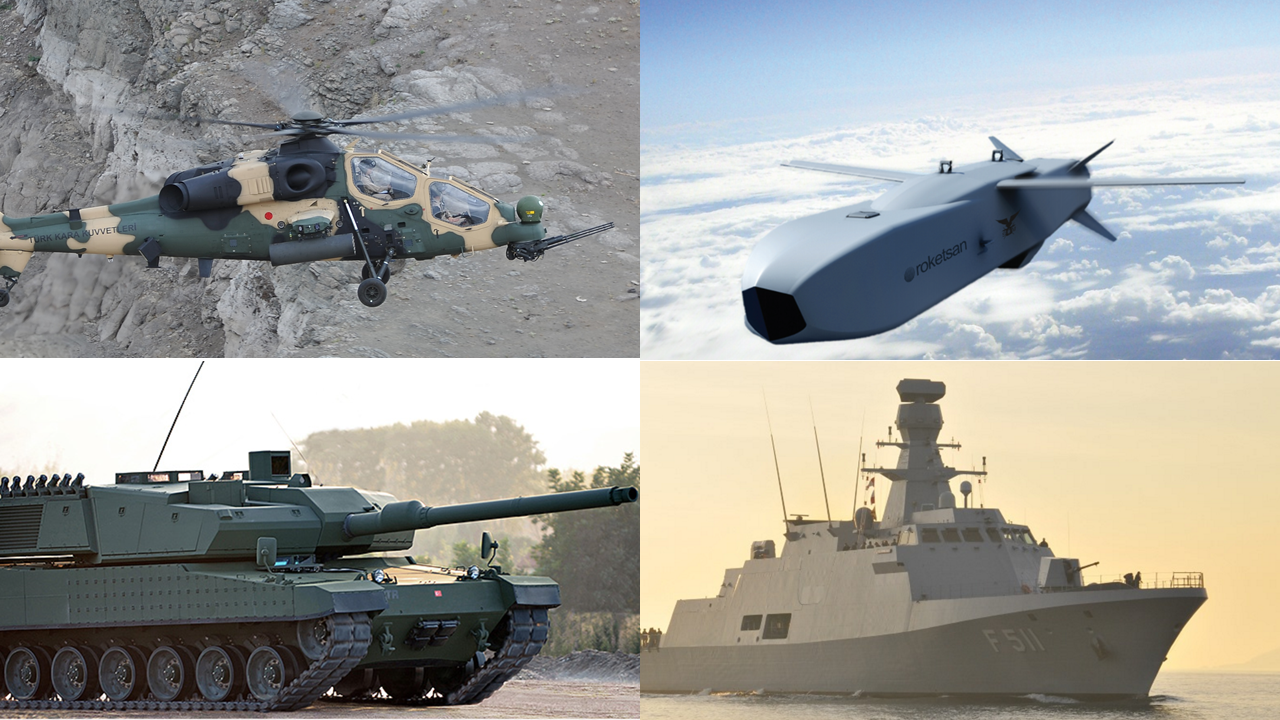2226Views 1Comment

Pakistan proposes joint defence production with Turkey and Azerbaijan
On November 30, the foreign ministers of Pakistan, Turkey and Azerbaijan conducted a trilateral meeting in Baku, Azerbaijan, during which Pakistan’s Foreign Minister Khawaja Muhammad Asif proposed for joint defence production between the three countries (Turk Press).
Recalling that Azerbaijan will procure Super Mushshak trainers from Pakistan Aeronautical Complex (PAC), the Azeri Foreign Minister Elmar Mammadyarov agreed with Asif, stating, “We can set-up joint projects to produce defence products and develop cooperation in this field in a trilateral manner.”
Turkey’s Foreign Minister, Mevlüt Çavuşoğlu, reiterated his colleagues’ sentiments, saying, “We are not competing with each other in this field [defence], but we are complementing each other.”
Finalizing the contractual details for 10 Super Mushshak trainers from PAC in September, Azerbaijan and Pakistan inked the contract during the trilateral foreign ministers meeting.
Notes & Comments:
Launched in 2002, the PAC Super Mushshak is an upgraded version of the Mushshak, a licensed produced copy of the Saab MFI-17 Supporter. The Super Mushshak is powered by a 260 hp Lycoming IO 540-V4A5 piston engine, Hartzell two-blade propeller and improved avionics (Garmin 950 or Dynon SkyView Classic).
PAC took over the role as manufacturer of the platform when Malmö Flygindustri ceased producing and supporting the platform. Turkey is also among the Super Mushshak’s customers, with 52 aircraft on order.
Besides training, PAC is also configuring the Super Mushshak with an electro-optical and infrared (EO/IR) sensor turret and guided air-to-surface weapons. Ostensibly for counterinsurgency (COIN) missions, it is unclear if the armed Super Mushshak is for live combat or training.
Pakistan and Azerbaijan are among Turkey’s realizable markets for its defence items, including big-ticket systems such as the Turkish Aerospace Industries (TAI) T129 ATAK attack helicopters.
In each of those markets, there are opportunities for the sale of wheeled and tracked armoured vehicles, artillery, helicopters, fixed-wing combat aircraft, electronics (e.g. sensors) and munitions.
Azerbaijan and Pakistan, being the smaller defence industry players of the three countries, will likely look to limit their hard currency outflows and increase support for their respective defence suppliers by linking to the supply channels supporting the Turkish Armed Forces. This could potentially be had by Islamabad and Baku partnering with Ankara in the latter’s development programs.
Pakistan is also eager to sell JF-17 Thunder multi-role fighters to Azerbaijan. PAC is configuring the Aselsan ASELPOD targeting pod to the JF-17, the completion of which will provide the JF-17 with precision-strike and reconnaissance capabilities. This, along with potentially other Turkish subsystems and air-to-surface weapons, could make their way to Azerbaijan should Baku select the JF-17.



1 Comment
by Amir Timur
Considering the nearly unbearable costs incurred in the COIN campaigns in the FATA and Balochistan, as well as the operations in Karachi to curb lawlessness, we know very well the importance of reaping benefits from states likely to assist us in building an indigenous defense industrial base.
I am not sure of the capacities that the Azeris can offer in terms of joint production, but the Turkish cooperation sought by the foreign minister is certainly viable and pragmatic. Take, for example, the above mentioned COIN requirements. For the PAF, a new trainer cum COIN aircraft such as the Hurkus is a better option that working further on the Super Mushshak, which itself is an improvisation of the Mushshak, which in turn is an improvisation of the Saab platform you’ve mentioned. The Hurkus has the added benefit of being both, a decent COIN and a reliable trainer platform, unlike the Super Tucano, whose bulk prevents efficient training. With the Hurjet being focused on more recently, something that Quwa has closely followed, it is a pertinent assumption that the jet trainer will bear great similarity to the turboprop variant. Armament, at least, will be extremely similar.
For the Army and the paramilitaries, the biggest source of causalities is the use of IEDs. Here, MRAPs and other armoured, mobile solutions are available through Otokar’s Cobra projects, amongst other options. The dependence on the Corps of Aviation, and the requisite modernisation of the unit also necessitates the much speculated and keenly observed ATAK deal. With a second, heavier variant in the offing, the platform only increases it’s potency and prospects. Utility and transport solutions can also be explored, and are also very crucial for the enhancement of counter terrorist and search and rescue capacities.
The navy’s recently revived modernisation program, for it’s corvettes to upgrades of existing submarines and other platforms also has seen assistance from Turkey.
More big ticket items, such as light artillery, the Altay tank, or the TFX fighter are perhaps not so viable for Pakistan. Not only are they expensive, but also too dependent on western subsystems. When it comes to platforms that serve our interests on the eastern flank with India, we can’t depend on the west. Which is why I certainly advocate greater cooperation with China on that front. But to curtail the transfers of technology and acquisition of technological exposure to systems and subsystems that Pakistan requires to continue it’s fight against terror is inexcusable and highly unlikely. This is one area where Pakistan can leverage it’s relationship with Turkey to provide incentives for it’s defense industries, both state owned and private enterprises. A dependency on Chinese systems, even in such contexts is faulty strategic thinking. We can’t put all our eggs in one basket.
Despite all of this, the Turks still can pursue upgradation programs on our F-16s and submarines or help enhance the electronics and other technologies and armament on the JF-17 projects upcoming third block, or the fourth or fifth blocks, if there are such ambitions. At the end of the day, Pakistan needs to work on it’s own interest, and here, a fellow Muslim nation that is genuinely close to ours can benefit from expanding it’s customer base while we receive much needed boosts in our defense sectors. I assume that their space program will remain a largely no go area, but if I’m wrong, then perhaps we need to explore that field more than anything. Considering that in a situation where we need to go nuclear, our communications and command & control assets are vulnerable to cyber attacks etc., SUPARCO might have to deepen it’s efforts as such.
Also, I have learnt, largely from this site, that Azerbaijan has a certain degree of competency in radar technology. Whether this translates into a convergence of interests in production of certain technologies, maybe Bilal could enlighten us.